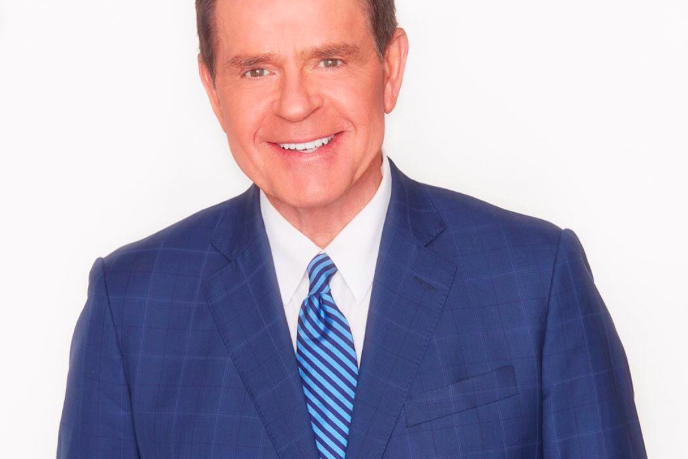
December 21, 2020
 @MikeJerrickFox29/Facebook
@MikeJerrickFox29/Facebook
FOX 29's Mike Jerrick made his return to 'Good Day Philadelphia' on Dec. 21, 2020, after missing three weeks due to COVID-19.
After more than three weeks off the air, "Good Day Philadelphia" co-anchor Mike Jerrick made his return to FOX 29 on Monday morning following a bout with COVID-19.
The 70-year-old host posted news of his return on Instagram, bidding goodbye to the arsenal of medicines that kept him company while he quarantined at his home in Philadelphia.
On Monday morning's show, Jerrick explained the trials of surviving the illness, both physically and mentally.
"It's bad," Jerrick said. "It's bad, and I never want to go through it again. I don't want anybody to ever get it. Just don't get it. Do whatever you have to do to just — don't get it. I'm not even sure how I got it."
Jerrick previously had said he tested positive after going on a brief vacation. He initially took a rapid antigen test, but the negative result didn't seem right. When he got a PCR test, it came back positive.
During his quarantine, Jerrick said he could barely keep up with regular self-care. He shared photos of his messy apartment.
"You know how when you get sick, you just don't care about anything?" Jerrick said. "I didn't shower for, like, a week. I wasn't shaving or anything like that."
Jokes aside, Jerrick underscored the menacing nature of COVID-19.
"I will say this," Jerrick added. "I think in my life, I've been sicker. You've ever had the flu so bad, you just want to die? What's weird about this one is, when I've been sick in the past, well, you're just going to get over it over about a week or so. But this just lingers and lingers."
On top of the physical symptoms, Jerrick said the haunting context of COVID-19 is a constant worry.
"You have this thing in the back of your head, where people are dying from it," Jerrick said. "That's why my daughters were freaking out. And I was too. The heaviest thing about it was, 'Oh my gosh, is this how I'm going to go out?'"
"I'm fortunate," Jerrick said. "I never went to the hospital. I'm feeling better. The fatigue is lingering in a way, but I'm still here."
The anchor shared that others around him at the station haven't been as lucky, including a security guard who died from COVID-19 in December. Jerrick had seen the guard recently before his own illness.
Jerrick thanked all those who wished him well while he was sick and expressed gratitude for their concern.
"I'm doing fine, compared to everyone who has lost loved ones," the "Good Day Philadelphia" host said.
With two COVID-19 vaccines now cleared with FDA authorization, the path toward containing the virus has taken a significant step forward. But with a highly contagious mutant strain of COVID-19 now rapidly spreading in parts of Europe, there are evolving concerns about the course of the pandemic.
FOX 29 medical contributor Dr. Mike Cirigliano emphasized the importance of continuing to take precautions and planning to get vaccinated when supplies are available. He suggested it's possible that COVID-19 vaccines could be needed as a more of a longer-term strategy to protect the public.
"We need to get our vaccinations, we need to to socially distance and wear masks and all of that stuff," Cirigliano said. "The thing out of this is we may need a yearly vaccine. I'm just predicting, looking into my crystal ball. But if the virus mutates enough that it's very different, then we would need to reciprocate like we do with the flu shot every year."
U.S. officials and medical experts are not suggesting that the current vaccines would be ineffective against this latest variation of the coronavirus.
"There is no reason to believe that the vaccines that have been developed will not be effective against this virus as well," Vivek H. Murthy, President-elect Joe Biden's nominee for surgeon general, said in an appearance on NBC's "Meet the Press." "The bottom line is if you're at home and hearing this news, it does not change what we do in terms of precautions."